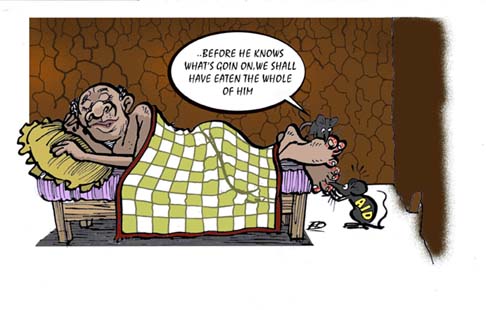|
|
 |
|
Are Ugandans simply a selfish people, intolerant and disgruntled? Why does it seem to be so hard to know what to do? Is our patriotism lacking? Why are we like this? Culture and history mould a people to be who they are. Is there something deep in our history and culture that can explain all of this? Has the time come to understand our culture and history better? Should we be more deliberate in understanding how our own culture a One of the most urgent questions that we face concerns violence and conflict in Uganda. Has conflict become self-perpetuating? Is it a permanent lucrative business? In whose interests is it to continue with conflict? Does violence perpetuate itself because of the violence of our history? Does increased violence in our homes contribute to increased violence in our public spaces? To what extent do our problems emanate from the fact that we are a nation of many cultures trying to live together? To what extent is co-existence complicated when some cultures consider themselves to be the epitome of all cultures? What is the contribution of languages, prejudices and stereotypes to divisions and mistrust within society? A question about the future Faced with all these challenges and difficult questions about Uganda today, we have asked ourselves: What will become of Uganda as we face a complex world and what will be the impact on its citizens? This is our question of the future. But no one knows the future. We can only imagine it. The three stories presented here offer imaginary futures for Uganda. As you read them, ask yourself that question: ‘What might become of Uganda and what might I do?’ The stories highlight three dilemmas:
We tell these stories in the hope that they will contribute to a better future for Uganda. They are stories of mistrust, violence, division and pain. But they are also stories of hope and renewal. Remember, these are not predictions of the future – rather imaginary futures that you might one day have to face. What do you think might happen? And what will you do to create the future you would rather see? |
| [Home] [Uganda Today] [The Price Paid] [Challenges] [Why like this?] [About Scenarios] [The Rope Bridge] [Ow'embaliga] [Ovago Vile Vile] [Comparisons, 1] [Comparisons, 2] [Comparisons, 3] [Comparisons, 4] [Comparisons, 5] [About SID] |
|
Society for International Development |
 nd history can help us shape development and modernization? What should we keep? What can we discard?
nd history can help us shape development and modernization? What should we keep? What can we discard?